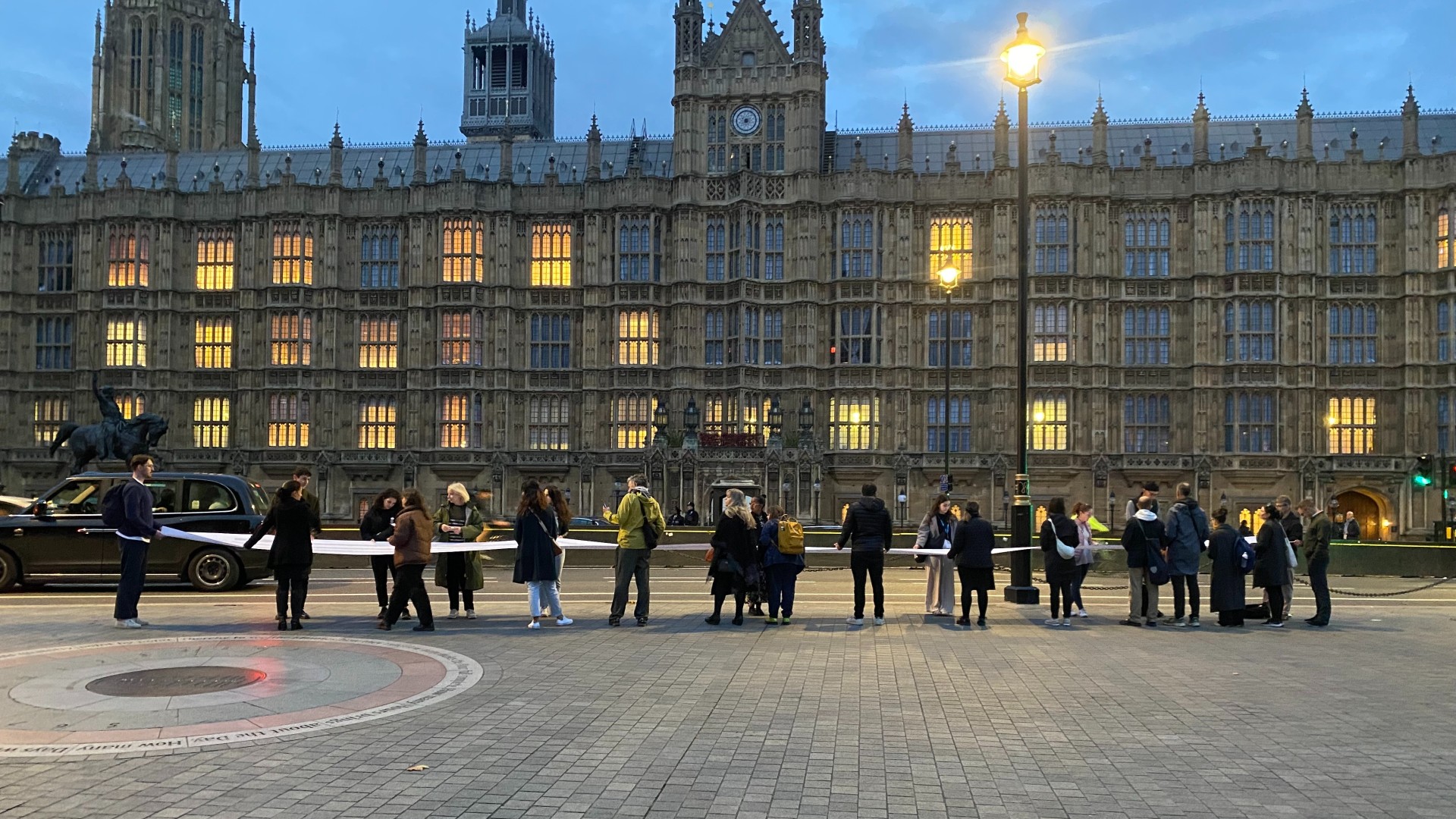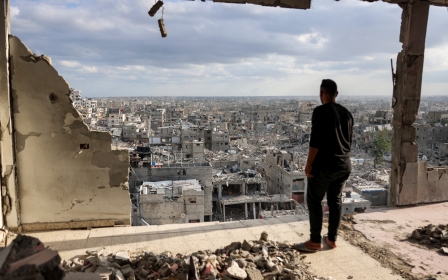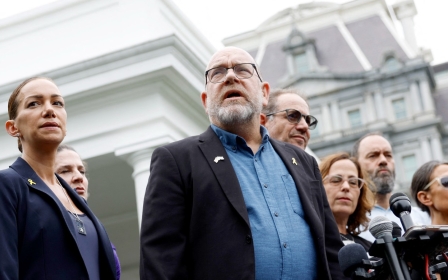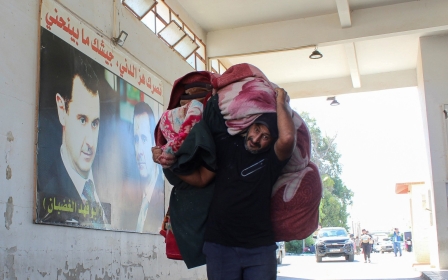UK: Humanitarians hold vigil for all killed on and since 7 October attacks
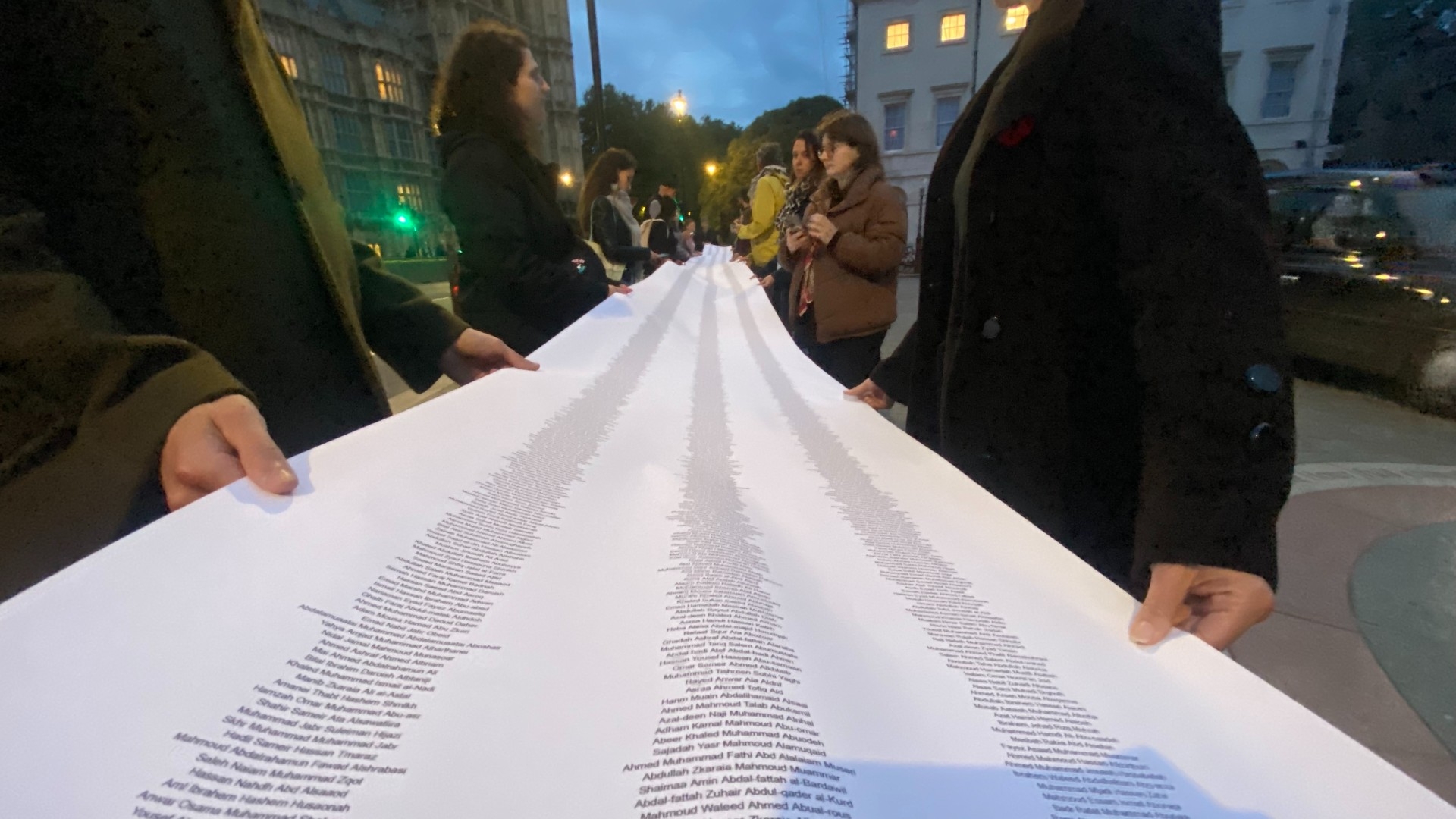
A small gathering of British humanitarian workers held a vigil outside of Parliament on Monday evening to mark the lives of all those killed in the Hamas-led attacks on southern Israel and the ensuing war on Gaza in the year that has passed since October 2023.
The names of more than 35,000 people killed in the conflict were printed in small text on a 15-metre scroll, including Israelis, Palestinians, foreign nationals who were living in Israel and international aid workers in Gaza. The first quarter of the list were children.
"This symbolic record is meant to mark and grieve for each life lost, honouring the memory of every person caught in the senseless violence," said the NGO organisers.
Their group stood in sombre silence holding the scroll, as commuters in steamy buses and packs of bikers glanced over. The bells of Big Ben tolled.
"We know that, over the last 12 months, there have been tens of thousands of lives lost, almost all of those in horrible circumstances," said Neil Sammonds, a senior campaigner for the UK-based charity, War on Want.
New MEE newsletter: Jerusalem Dispatch
Sign up to get the latest insights and analysis on Israel-Palestine, alongside Turkey Unpacked and other MEE newsletters
"We want to remember those who died on 7 October, but it was really important that we remember those who died thereafter."
Sammond said that by remembering all those who have died in the violence of the past year, the group was also "remembering the people who lost their lives beforehand".
"People are dying through a conflict which goes back decades and not something which was only 7 October, though that is very important," he said.
Kate Munro, head of advocacy at Action Against Hunger UK, noted that all of those named on the scroll were killed directly as a result of the conflict.
The escalating humanitarian crisis in Gaza - including hunger and loss of clean water and fuel - has impacted many more people, Munro said.
'There is a much wider group of people - most of the population of Gaza - who have been also acutely affected," she said.
Munro also said it had been "a disastrous crisis when it comes to protecting aid workers from attack", and that little has changed to improve humanitarian deconfliction systems to protect them.
Chris Rose, director of the Amos Trust, a human rights organisation that has worked in Palestine for 30 years with many musicians, poets and artists, read a poem at the vigil by Palestinian poet Mosab Abu Toha. "I can see every one of us, under the rubble," it ended.
Rose, who is also a priest and in that role often holds spaces for people to grieve together, said he believes "that commemoration is really important for us as people".
Several of those who attended highlighted that more than 2,000 people in Lebanon killed in the past two weeks had not been added because an official list has not been released.
'I'm scared that this is only part of the beginning'
- Neil Sammond, War on Want
"As humanitarians, we bear witness to this suffering and stand in solidarity with those enduring the horrors of mass atrocities and conflict," the organisers said.
"We call on all states to bring an end to the violence, not only as a mark of respect for the lives lost but also because they have a legal and moral duty to restore peace."
At the end of the scroll, there was about a metre of blank space that Sammond eyed.
"A year ago, we expected there would be horrible reprisals. I don't think anyone ever imagined it would be as much as this with risks of regional escalation and all other parties getting involved," Sammond said.
"I'm scared that this is only part of the beginning."
Middle East Eye delivers independent and unrivalled coverage and analysis of the Middle East, North Africa and beyond. To learn more about republishing this content and the associated fees, please fill out this form. More about MEE can be found here.


